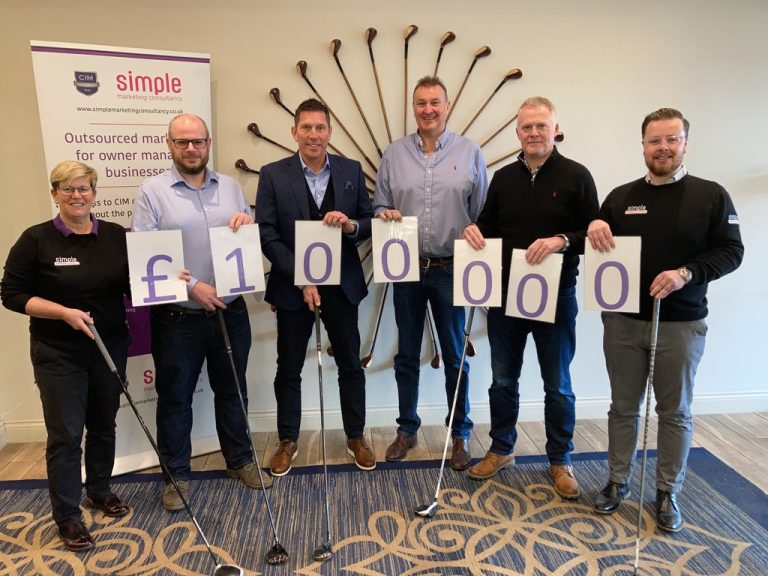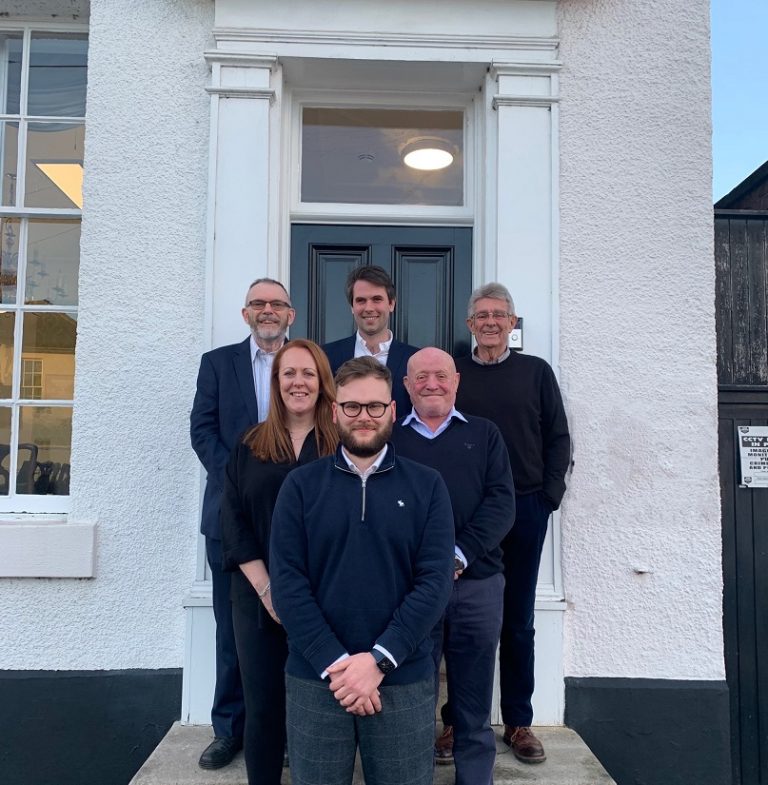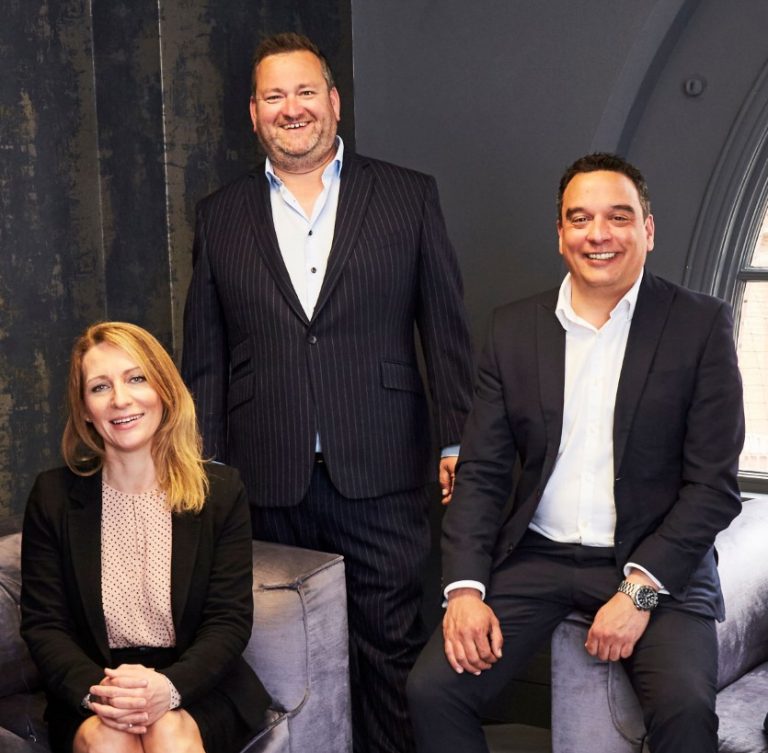Six East Midlands businesses tee off on £100,000 golf challenge
Long established Derby Chartered surveying firms merge
New primary school for a growing area of Derby
Return to profit for Rolls-Royce as CEO steps down
Haven purchases first holiday park in six years with Skegness acquisition
Property specialist to launch hub in Nottingham as part of national expansion
Residential and commercial property specialist Centrick is launching a series of new city office hubs in a national expansion drive as it continues to secure major new building and estate management contracts across the country.
The business is investing more than £1 million this year as it recruits around 50 staff to deliver services from new regional offices in Sheffield and Gerrard’s Cross, as well as city hubs in Manchester, Portsmouth, and Nottingham.
More hubs at key locations are in the pipeline. Centrick’s building and estate management and build to rent teams will grow to more than 70 by the end of the year, handling a portfolio of over 350 developments comprising around 20,000 homes.
Centrick chairman James Ackrill said: “Our approach to expansion at Centrick has always been cautious and considered. The concept behind our national expansion program has been to try and stay true to our values of building quality local teams with local knowledge and connections that benefit the buildings that we manage. “City hubs allow us to build a working environment closer to the buildings that we manage. By doing this we can forge stronger working relationships both with our clients and our network of local contractors.” He added: “This blend of hub and spoke offices allows us to continue to invest within key areas of our core team, such as building safety and compliance, whilst providing a local service, on a national level. As the number of homes we look after continues to grow we expect this scalable model to expand further to meet the requirements of our clients. The teams located throughout England have the benefit of a comprehensive infrastructure of technology, knowledge and expertise all designed to fulfil the vision of Centrick, ‘helping to make our customers’ lives better’.“The hubs will be in serviced office environments, spaces where we will create an environment that is better than working from home and better for the team. They will be a great place to be. Our teams can work and be part of a busy and energetic environment where they can meet as a team and meet clients. It is much better for collaboration and it will also help cement our relationships with local contractors.”
Group Managing Director Phil Johns said: “Both Centrick’s building and estate management and build to rent services have continued to experience strong growth over the last two years and, as part of the next phase of the company’s evolution, we will be building on our regional office network. “To ensure high quality property management, we feel there has to be local level property managers that can build strong relationships with supply chains and contractors. This allows best value for money delivery and better knowledge of local eco-climates, which is always top of the agenda for our customers.”Challenges remain but businesses confident about future, LLEP survey shows
Almost 9 in 10 businesses said they were feeling positive when surveyed by the Leicester and Leicestershire Enterprise Partnership (LLEP) in the latest wave of its Business Tracker.
The responses from the third survey in the series, which was completed before Christmas, have now been compiled. The LLEP is continuing to monitor the views of business on key issues within the local, national and international economy as Covid restrictions further ease this week.
The LLEP has been tracking the experience of local businesses since December 2020, with the aim of using frontline responses to inform local policy and target support where it is needed most.
Kevin Harris, Chair of the LLEP Board, said latest survey results showed cautious optimism among businesses in Leicester and Leicestershire, but added that external uncertainty meant that recovery remained delicate.
“The message we took from the survey is that business is increasingly confident about the longer-term but faces a disrupted shorter-term which, for some, may mean continuing adaptation,” he said.
“Big themes in the external environment, such as the Pandemic and the ongoing effect of transition from the EU, continue to combine with threats in our employers’ microenvironments, including disrupted supply chains, recruitment gaps and the balance around hybrid working.
“We also need to remember the factors of inflation and cost of living, which have developed since the third survey was completed. All of these are challenges which will have to be managed over the next 12 months.
“That said, it’s encouraging to see businesses continuing to move towards sustainability, digital technology and inclusive working.
“It’s also encouraging to see how optimistic our employers are about the future, despite the challenges of the last couple of years.”
More than 100 local small and medium-sized businesses, from all sectors and from across city and county, took part in the third wave of surveys attached to the Covid-19 Business Tracker.
Responses are used to monitor local business confidence, identify support needs, examine how SMEs are adapting to enforced change, and provide evidence for future funding bids.
The survey also feeds into the LLEP’s Economic Growth Strategy 2021-30, which plans a decade of regional development based on the four pillars of innovation, inclusion, productivity and sustainability.
GRP-owned PCH completes third acquisition with deal for Amba Care and Wellbeing
University of Northampton to invest in social ventures
CityFibre makes key appointment as work gets underway on Lincoln’s Full Fibre rollout
CityFibre, the independent full fibre platform, has announced its city manager for Lincoln as it starts work on a £21m project that will see almost every home and business benefit from access to a full fibre broadband network.
Lincoln has been chosen as one of the latest cities to benefit from CityFibre’s £4bn Gigabit City Investment Programme, which will bring next generation, gigabit-speed broadband to nearly every home and business in the city, and to up to 8 million premises nationwide.
Neal Wright has been appointed by CityFibre to spearhead delivery of the Lincoln project. As city manager, Neal will be responsible for ensuring a state-of-the-art full fibre network is rolled out with minimal disruption while delivering maximum benefit for the wider community.
Neal will be overseeing work on Saxilby Road, a main access route to the city centre which saw some initial work commence yesterday, with further works due to start on Greetwell Road on 28 February. The work in Saxilby Road is planned to take around two days, while the rollout in Greetwell Road is scheduled for completion on 11 March, with traffic management systems to help minimise disruption.
Works will then progress onto Monks Road, Cannon and Winn Street.
With over 20 years’ experience in the telecoms industry, Neal is passionate about technology, digital infrastructure, and the benefits of full fibre connectivity. He joined CityFibre in 2017 having previously worked in wholesale for 10 years, where he was responsible for signing on internet service providers as partners and selling private circuits and complex WAN solutions.
Neal is also currently responsible for overseeing CityFibre’s £21m full fibre rollout in Worcester, having previously led projects in Derby and Nottingham.
Building on his wealth of experience, his new role with CityFibre will position Neal as the lead point-of-contact for all of Lincoln’s stakeholders. He will also be a key advocate of the benefits that a full fibre network will bring to city’s residents and businesses.
He said: “A state-of-the-art digital infrastructure plays a crucial role in growing and protecting local economies and I’m delighted to be leading such works in Lincoln, which will transform the city’s digital capabilities for decades to come.
“While the benefits of full fibre broadband are undeniable, we completely understand that this project is a major undertaking for the community – particularly when we need to install the network in busy arteries such as Saxilby Road and Greetwell Road. We’d like to reassure Lincoln residents that we are doing everything we can to manage disruption as much as possible, and thank them for their support and patience.”
He continued: “As we roll out the new network, we will abide by all council processes and keep residents updated. Once construction is complete, households in Lincoln will be among the growing number of UK communities with access to full fibre broadband, unlocking a new world of digital opportunity.”
Construction of the full fibre network is being delivered by Trust Utility Management on behalf of CityFibre.











